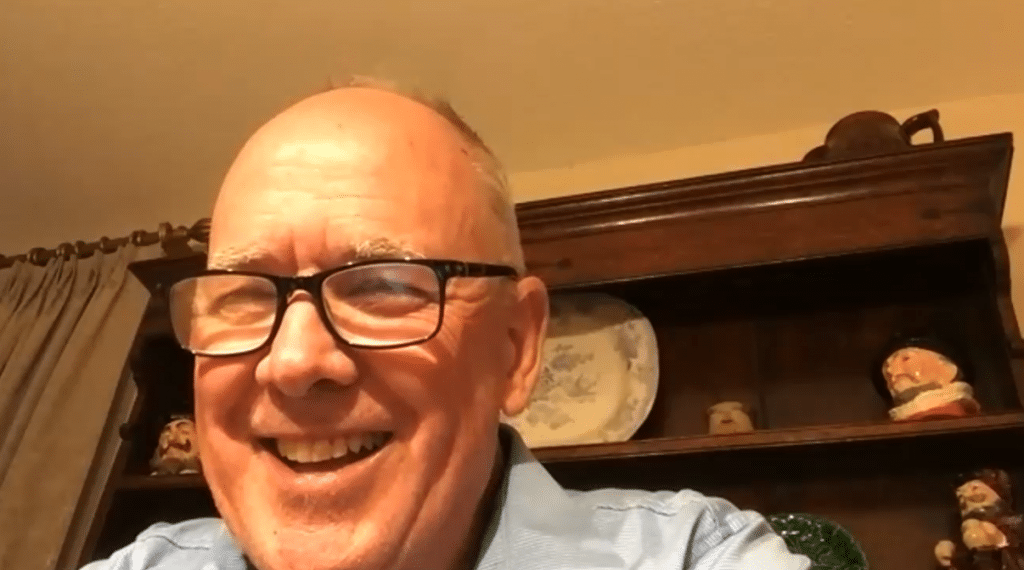Sandy Alderson talks International Baseball, Analytics on “Chatter Up!”
Check out the full transcript here.
Sandy Alderson, the former General Manager of the Oakland Athletics and New York Mets, has never been one to back down from a challenge. Whether it was trying to rearrange Major League Baseball’s structure in the Dominican Republic, bringing the Mets back to respectability after the Madoff financial scandal, becoming the Oakland GM with no prior baseball experience, or putting together the Gold Medal U.S.A. baseball team at the 2000 Olympics, Alderson has said that he’ll “do anything once,” including the tough positions that others might back down from. So it was no surprise that he took on the worthy task of answering questions on JapanBall’s “Chatter Up!”
Alderson appeared on the show on July 16 to talk with fans about his lengthy baseball career. Alderson also spoke about Japanese baseball, touching on the hard work and discipline of the players, along with the dedication and passion of the fanbases.
“I’ve always been thoroughly impressed with Japanese baseball and their commitment to the game and the commitment not only [of] the players but also of the fans,” Alderson said. “But while I’ve got tremendous respect for Japanese baseball, over the years we’ve almost never signed a Japanese player directly from Japan. And that’s partly because I’ve been with teams where we really didn’t have the resources to compete, either scouting-wise or financially for those players. But the commitment that the players have, the discipline that they have, the seriousness with which they take the game has always been very impressive.”
Although he’s had a lengthy baseball career, he didn’t always intend to end up in the game. He was originally in the Marine Corps, then got his law degree from Harvard and began practicing as an attorney when he became involved in a group that bought the Athletics from Charles O. Finley in 1981. Alderson said that this lack of baseball experience helped him find a unique, statistics-driven approach to the game that he might not have found otherwise:
“I was in this position where I needed to be able to evaluate players, and you certainly can do that through surrogates, systems and people like that, but ultimately, you have to have sort of a decision-making structure of your own,” Alderson said. “I first became aware of analytics [when I] was driving to work one day and listening to public radio and listening to a fellow who we ultimately hired as a consultant… There was this bias, if you will, toward offense. Now maybe that was because in those days, defense couldn’t really be measured that well, and so what you can’t measure you can’t improve and you don’t, maybe you undervalue. But if you look at those teams, that’s kind of how they were developed… I think those were the first few days when offense began to override defense in almost every position.”
Beyond analytics and the A’s, Alderson also discussed his accomplishments in the international baseball community. He was one of the leading executives that put together the 2000 USA Olympic team (the first Olympics that featured professional baseball players) that won the Gold Medal in Sydney, and he also helped the MLB create more of a respected presence in the Dominican Republic:
“The goal was, in a general sense, to kind of clean up the Major League Baseball image in the Dominican Republic and make us, MLB, a better corporate, international citizen, if you will,” Alderson said. “Part of the problem was Dominican-based age discrim[ination], age manipulation, steroid use, things of that nature, but also a lot of the corruption was supplemented by people from Major League organizations. When I went down there, most people feared that I was there to impose a draft, so there was a lot of pushback from the baseball community there initially, and it was only after a period of time that I made it clear I wasn’t there to eliminate the [free agency] system, but rather to improve it. And we did that by instituting identity investigations, more testing for drug use, and so forth.”
Alderson, however, is not yet satisfied with MLB’s international efforts, as he feels there’s more to be done about spreading the game internationally, beyond hotspots such as the Dominican Republic, Cuba, Venezuela and, yes, Japan:
“I’m a big believer in promoting international baseball… I’ve always tried to push baseball internationally, to invest internationally, particularly in places where we don’t currently have a footprint,” Alderson said. “We have a small academy in China. The number of people who support it [is a] ridiculously low number of people that we support to play baseball in China. We do nothing in a place like India… [which is] a perfect location for the promotion of baseball. They play cricket, so the height, the eye-hand coordination stuff, they’re totally familiar with. In many places they speak English, so the scouting and development would be easier, and we don’t really do anything in India… There’s no reason why there can’t be more players from Europe and other places, but we don’t spend the money to develop those players or provide opportunities.”
Alderson also talked about MLB contracting the minor leagues, his experience with eccentric managers like Tommy Lasorda and Billy Martin, and, even though he helped create it, his slight disapproval of the analytics-driven strategies that run rampant in modern baseball today. To read all of these stories word-for-word, you can check out the full transcript here, or watch the full discussion on our YouTube channel.

Even though he began with no experience whatsoever, Sandy Alderson more than made up for it as he travelled the baseball map… even virtually, with JapanBall.
